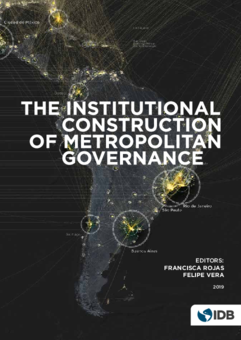The Institutional Construction of Metropolitan Governance
Date issued
Sep 2019
Subject
Urban Development;
Urban Planning;
Governance;
Decentralization;
Municipal Government;
Metropolitan Area;
Metropolitan Governance
JEL code
R53 - Public Facility Location Analysis • Public Investment and Capital Stock;
R50 - Regional Government Analysis: General;
R11 - Regional Economic Activity: Growth, Development, Environmental Issues, and Changes;
R52 - Land Use and Other Regulations;
R12 - Size and Spatial Distributions of Regional Economic Activity;
R58 - Regional Development Planning and Policy
Country
Chile
Category
Monographs
The complexity of urban centers has increased. Cities have been transformed into territories that present important governance, interjurisdictional coordination, and financing challenges. Approximately 47% of the population of Latin America and the Caribbean live in 180 urban centers with a population of more than 100,000 inhabitants, equivalent to about 265 million people. Metropolitan Areas are a great part of these urban centers. Considering the need to define a new way to deal with the problems derived from the growth of urban areas involving more than one municipality or district, it becomes relevant to discuss various visions and experiences to understand how metropolitan management can be approached in a coordinated and collaborative way. This publication presents a collection of experiences, voices, and territories, in order to become a document that can allow for reflection and proposals for the governance of Metropolitan Areas.
Generative AI enabled




